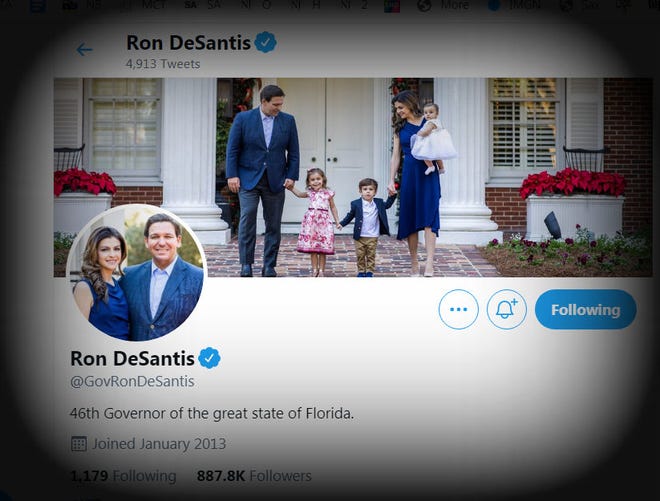I agree with Ari Cohen. As Saint Augustine put it best, "An unjust law is now law all."
Our state representative CYNTHIA WARD STEVENSON, supported this unconstitutional law.
If elected, I would work to repeal it (if there's not already a final court order finding it illegal).
Governor's social media bill is unconstitutional and unwise
Gov. Ron DeSantis claims his Transparency in Technology Act would protect free speech. The bill restricts how social media sites moderate objectionable content and requires “detailed definitions” of what content is prohibited. But the bill’s entire premise is backwards. As private entities, social media companies are not bound by First Amendment restrictions. In fact, they have their own First Amendment right to determine who may publish using their websites, and what messages will be allowed.

Florida lawmakers should understand this better than anyone. In Miami Herald Publishing Co. v. Tornillo (1974), the Supreme Court invalidated a Florida law requiring newspapers who ran articles critical of political candidates to publish a reply from the candidate. Florida argued that newspapers had monopoly power and gave a tiny elite an outsized role in public discourse — and that “fairness” regulation was necessary to protect the public’s ability to participate in the marketplace of ideas.
Exactly the same arguments are being made today about “Big Tech.” But the Supreme Court ruled that none of this justified infringing on First Amendment rights; newspapers simply could not be compelled to publish material they did not wish to. The same constitutional principles protect social media.
Requiring platforms to publish detailed disclosures of content moderation policies is no less unconstitutional than dictating how those policies should be enforced. A recent unanimous opinion of the U.S. Court of Appeals for the Fourth Circuit makes that clear. Written by Reagan appointee J. Harvie Wilkinson III, the opinion eviscerated a Maryland law requiring websites to disclose who had purchased campaign ads, calling it a “compendium of traditional First Amendment infirmities.”
Judge Wilkinson explained why content moderation laws will likely result in less, rather than more, speech: “Faced with this headache, there is good reason to suspect many platforms would simply conclude: Why bother?” Twitter has already stopped carrying political ads. Other sites may well follow suit — and even ban political candidates altogether.
DeSantis’ bill is wrapped in a veneer of “consumer protection.” But simply calling it a consumer protection bill does not make it so. The bill’s true purpose is to dictate to social media companies what speech and which speakers they must allow on their property. DeSantis doesn’t conceal his goal, calling the legislation “the most ambitious reforms yet proposed for combating political censorship and deplatforming.”

It’s fair to scrutinize the influence of social media on our national dialogue, and how content moderation works — but this bill will only distract from serious debate. As with traditional media, the First Amendment leaves those questions to civil society and market forces. Ultimately, where websites draw lines on content moderation is shaped by what consumers and advertisers find noxious.
Passing this bill may mollify those who feel that “something must be done.” But their satisfaction will be short-lived: this purely performative legislation will quickly be struck down, and violating the First Amendment in the name of free speech betrays the very principles DeSantis claims to champion.
Ari Cohn is free speech counsel at TechFreedom, a non-partisan, non-profit think tank dedicated to technology law and policy.
No comments:
Post a Comment